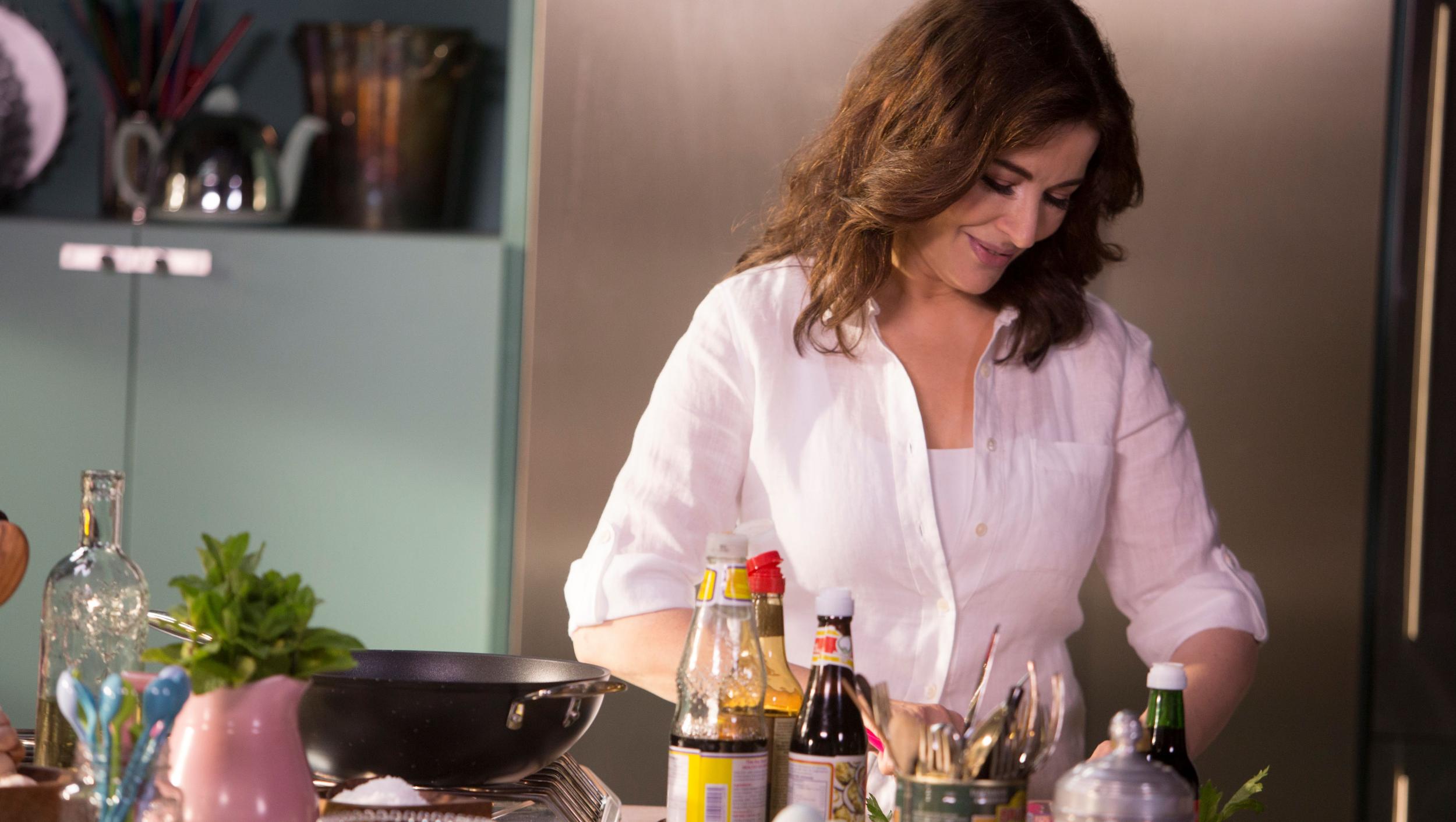Now even Nigella agrees, it's time to accept that 'clean eating' is good for your body and bad for your mind
Don't fancy hanging out with Clean Eating Alice - advocate of ‘cauliflower rice’ - and Deliciously Ella, creator of the ‘quinoa pizza’? You're not the only one

I’m fed up of people talking about food.
Whether it’s how many calories something’s got in it, if it’s gluten free or not, or the salt content, I really don’t want to know.
Not only because it’s a boring topic, but I don’t want to inherit people’s obsession with the stuff. I have a functional relationship with grub: it goes in my mouth, it makes me happy, the end. But it’s hard to keep a balanced perspective when everyone, everywhere is preoccupied with ‘clean eating’.
I blame Instagrammers for this movement. With their flashy cameras and crafty filters, they’ve fooled the world into thinking that sprouts, cabbage and other extremely dull vegetables will somehow hit the spot.
And there’s a ton of them about, such as Clean Eating Alice - advocate of ‘cauliflower rice’ - and Deliciously Ella, creator of the ‘quinoa pizza’ (‘Sorry, Ella, I’m busy that night’). These glowing women have become idols to thousands of followers, who eagerly subscribe to the recipes they post. Food I’d rather give to a rabbit than nibble on myself.
Thankfully I’m not the only one who’s sceptical about this cult. In a new interview with the BBC, Nigella Lawson has been deeply critical of ‘clean eating’, suggesting the expression implied ‘that any other form of eating is dirty or shameful’. She added that certain diet choices could make some people feel ‘bad or sinful’ versus ‘virtuous’.
And she’s right. Increasingly we are using our dietary choices to measure our worth. Clean eating bloggers do not solely post about food – they create an aspirational world, filled with photographs of their skinny, happy selves. Through doing this, they convince their disciples that they can be more attractive, content people, too, if they ditch the chocolate cake for broccoli chips.
As a result, disordered patterns of eating are becoming the norm. The clean eating movement has seen us completely reconceptualise food into ‘good’ and ‘bad’ camps, where we feel guilty for indulging in things like potatoes and butter (which, let’s face it, are a lot more yummy than lentils). And we berate ourselves for putting on flab, rather than acknowledging that it’s normal to have a bit of it.
I’m not saying that we should start guzzling ten slices of cake a day, but we need to think long and hard about this industry. It’s fuelling a self-improvement culture, where we’re constantly trying to improve our bodies – without recognising that we are, right now, the final product.
If there is such a thing as ‘clean eating’, then I’m happy to be incredibly dirty. I want to eat chocolate and batter, and all those things that we’re taught are ‘naughty’ foods. They make me happy – and isn’t that reason enough to carry on noshing?
I rather subscribe to the view that everything should be in moderation. It might not get me my own cookbook, but it worked for older generations. And it's a mentality that allows us to enjoy the wonderful spectrum of food life has to offer. A diet of pulses and vegetables may make us physically healthier, but surely we are mentally healthier when we’re not constantly thinking about clean eating. Our bodies are not machines; sometimes they’re hungry for burgers, chips and the like. And when that happens, I say - go on, it's good to be dirty.



Join our commenting forum
Join thought-provoking conversations, follow other Independent readers and see their replies